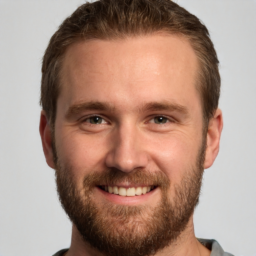It’s become the norm, in the modern era, to have chronic symptoms—fatigue, joint pain, IBS, weight gain, anxiety, depression, insomnia, and headaches, to name a few—yet, to our ancestors, the norm was to be healthy and symptom-free.
What did our ancestors know, that we seem to have forgotten?
Why do 60% of Americans have a chronic illness today, when almost no one had a chronic illness 200 years ago?1
These are important questions, perhaps some of the most important of our time, and the answers are complicated and multifactorial.
But the most obvious answers to these questions are, conveniently, also the most impactful—the most likely to slow and even reverse the trend of chronic illness, if the lessons in these answers are implemented at scale.
So, how did we get here?
I believe that the chronic illness epidemic is the result of two causes.
The first cause of the epidemic is the misalignment of our modern diet and lifestyle with our genes and biology.
The second cause is the inadequacy of the conventional medical paradigm, which focuses on suppressing symptoms with medication rather than resolving symptoms by identifying and addressing the underlying causes.
The first cause creates the conditions for chronic illness, and the second cause intensifies the problem by failing to provide solutions.
Our modern diet and lifestyle
For 99.9% of human history, humans lived as hunter-gatherers.
We ate a diet primarily consisting of fruits, vegetables, nuts, seeds, meat, and fish.
We exerted ourselves regularly to hunt and gather our food.
There were no grocery stores, fast-food restaurants, or food delivery options.
Everything we consumed was natural, unadulterated, and required a certain amount of expended energy to obtain.
But in the last 200 years, or 0.1% of our existence (if we assume the anatomically modern human to date back 200,000 years), our diet and lifestyle have dramatically changed.
The Industrial Revolution provided us with modern agriculture and food manufacturing, and these improvements enabled us to spend less of our time worrying about our next meal, yet they also created an environment radically different from the one that we evolved in, that our genes and biology had adapted to over thousands of generations.
Our diet and lifestyle have changed faster than our genes can adapt, and this misalignment has resulted in an unprecedented rate of chronic illness.
Most people with chronic illness are unaware of this misalignment, seek help from a medical system that ignores diet and lifestyle in favor of medication, and experience declining health, over time, as the causes of their symptoms remain unaddressed.
Conventional medicine is necessary but not sufficient
To understand why conventional medicine fails to reverse chronic illness, and thus allows the epidemic to grow unchecked, it’s helpful to look to the past and consider the environment in which modern medicine was born, and the various factors that influenced its development.
The conventional medical paradigm evolved during a time in the developed world in which acute infectious diseases were the primary causes of death.
The introduction of antibiotics in the early 20th century made possible the treatment of such infections, and ushered in a new era of medicine wherein the primary causes of death shifted from communicable diseases (typhoid, tuberculosis, pneumonia, diphtheria, and enteritis) to non-communicable diseases (cardiovascular disease, cancer, respiratory disease, stroke, and diabetes).2 3
Anesthesia allowed life-saving surgical procedures to be conducted without causing excruciating pain for the patient, which resulted in a significant increase in the frequency of surgeries.
These and many other important advancements helped to cement the notion that technological innovation is the most effective tool against disease, and the “if this (disease), then that (treatment)” fundamental philosophy in conventional medicine was the natural result.
While this technological, algorithmic approach remains profoundly effective for addressing acute infection and trauma, it wasn’t designed to address diet- and lifestyle-driven chronic illness, which was much rarer 200 years ago, prior to modern agriculture, food manufacturing, and modern medicine, but today is responsible for 70% of all deaths in the United States.4
That’s not to say that we don’t need conventional medicine.
We absolutely do.
Medical advancements have positively impacted human health in innumerable ways, and have allowed us to live significantly longer—life expectancy for Americans born in 1900 was 47, compared to 78 for those born in 2010.5
Modern medicine certainly excels at addressing severe infections, broken bones, heart attacks, blood clots, and keeping people alive when, in a previous era, they wouldn’t have survived.
Yet, as our lifespans have increased, so too has the incidence of chronic illness.
And even with its impressive capabilities, conventional medicine isn’t equipped for this new challenge.
An alarming 16% of Americans have diabetes, for example, and most of them seek help from practitioners who were trained to manage the condition with medication and procedures, rather than help their patients to address the causes of their diabetes by removing processed foods and refined sugars from their diet.6
That conventional practitioners fail to address the causes of diabetes—perhaps the easiest diet- and lifestyle-driven chronic condition to resolve—and instead use insulin and medication to lower blood sugar, at inexorably increasing doses, represents the frightening degree to which the medical system has embraced a technological approach to suppressing symptoms over a logical, cause-focused approach to resolving them.
The future of medicine
The reality is that our genes and biology aren’t going to change any time soon to accommodate our modern diet and lifestyle, and conventional medicine isn’t going to reinvent itself to more effectively address chronic illness, given how thoroughly the technological approach is integrated, and, equally important, the lack of financial incentive for the most influential constituent of the medical system—the pharmaceutical industry—to help patients achieve and maintain health.
As a result, the epidemic will continue to grow as chronic illness sufferers turn to conventional medicine for help, only to have their symptoms suppressed without consideration of the causes.
But it doesn’t have to be this way.
At Quantify, we’re pioneering a new approach to chronic illness.
We help you to bring your diet and lifestyle back into alignment with your genes and biology, to create an optimal foundation for healing.
We help you to identify the causes of your symptoms by conducting a comprehensive evaluation of your health, testing for parasites, bacteria, fungi, viruses, metals, chemicals, food sensitivities, hormones, organic acids, and micronutrients.
And, once the causes of your symptoms have been identified, we help you to address the causes using evidence-based natural therapies, such as certain vitamins, minerals, amino acids, and phytonutrients, that are shown in research to be effective, but that are often dismissed by conventional practitioners who are neither trained nor interested in such an approach.
We envision a future in which everyone with chronic illness has the opportunity to identify and address the causes of their symptoms, regardless of complexity, and we’re working hard to get there.




